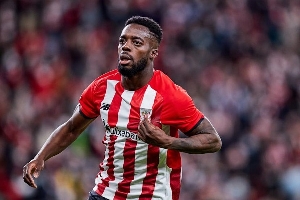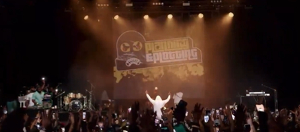- Home - News
- TWI News | TV
- Polls
- Year In Review
- News Archive
- Crime & Punishment
- Politics
- Regional
- Editorial
- Health
- Ghanaians Abroad
- Tabloid
- Africa
- Religion
- Election 2020
- Coronavirus
- News Videos | TV
- Photo Archives
- News Headlines
- Press Release
General News of Friday, 19 September 2003
Source: The Statesman
Kanu Foundation: Healing beyond borders
CALEB ALLOTEY, a five-year-old Ghanaian boy with a shy smile and glowing brown eyes, looks lively enough. But when he plays with his friends in Accra he soon struggles for breath and his heart pounds. He has to sit out until he gets his strength back.
Doctors told his parents that unless he had open-heart surgery, he would grow up an invalid. In Ghana the government doesn’t pay, his mother Jemima said in Tel Aviv. An operation would cost the family at least US $24,000.
Mrs Allotey (33), is a secretary, her husband an unemployed bank clerk. They have two older children. “I realised it was beyond our means,” she said. “I kept praying for something good to happen.”
Her prayers were answered when her brother-in-law, Frank Osei, a Ghanaian soccer international, put her in touch with another African star, Nwankwo Kanu. After his own career was saved by heart surgery, the Arsenal and Nigeria forward launched a charity that funds life-saving operations for African children.
Caleb is one of 12 boys and girls from Nigeria and Ghana, aged 18 months to 11 years, the London-based Kanu Foundation has sent this summer for surgery at the Wolfson Medical Centre, an Israeli government hospital. Each child comes with a parent or nurse. Save a Child’s Heart, an Israeli voluntary organisation that sponsors the programme, houses them – before and after the operation – in a rambling hostel in the Tel Aviv suburb of Azur.
“They make the mother feel good,” Mrs Allotey said. “They are providing patience and love. The medical staff are unique. They are doing a great job. Here I have hope.”
Save a Child’s Heart was founded in 1995 by Ami Cohen, a cardiac surgeon who worked at the Wolfson hospital and died of a heart attack while climbing Mount Kilimanjaro in Tanzania.
So far, the project has treated 880 children from 19 countries – 52 per cent from Africa, 31 per cent Palestinians from the West Bank and Gaza Strip, the rest from Asia and the former Soviet Union.
It has a waiting list of 900. Each operation costs about $7,000. The money comes from donors in Britain and North America, as well as Israel’s foreign aid budget. The doctors give their services free.
“We get the most complicated cases,” said Dr Sion Houri, head of the Wolfson’s pediatric intensive care unit. “With existing facilities, we could handle 250 cases a year, but we only have funds for 150.”
On the ward, Biyi Salameh, a 19-month-old Nigerian boy was recovering from extremely delicate surgery. “His hands and legs were purple,” his grandmother, Abigail, said as she sat patiently by his bedside. “They couldn’t do anything for him back home.”
In a tiny cot, Rana Humeid, a six-month-old Palestinian girl from Nablus, had come through some of the most complicated operations of them all. Rana was born with her heart on the right instead of the left. The chambers were back to front and the veins abnormally connected. There was a big hole between two ventricles.
The surgical team spent 12 hours, in two separate sessions, making her heart function properly (albeit still on the wrong side).
Dr Akiva Tamir, the chief pediatric cardiologist, reported that she was doing very well.
The Israeli doctors had no hesitation about operating on Palestinian patients. “We treat human beings,” Dr Tamir asserted.
“We’re not dealing with politics. Human life is beyond borders. We see the suffering. Our profession is to help people.”










